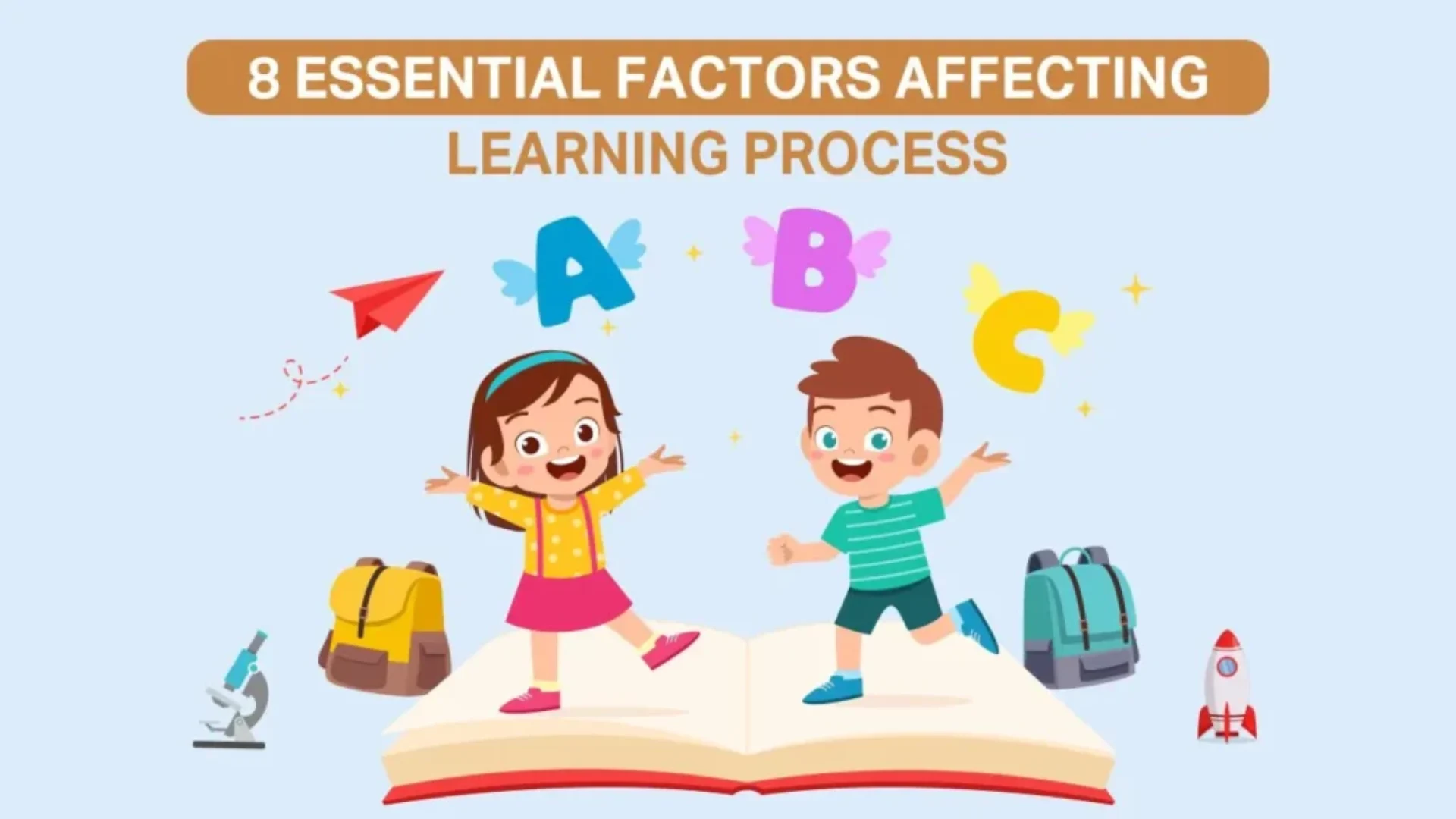8 Essential Factors Affecting Learning Process
Acquiring extensive knowledge and skills through learning is a continuous process that enhances our lives positively and gives us more power to face arduous challenges. Moreover, it’s important to recognize that the learning process is influenced by a wide range of factors that extend beyond textbooks and classrooms. In this blog post, I’ll be sharing the factors affecting learning process and how understanding these variables can enhance your ability to learn effectively.
8 Essential Factors Affecting Learning Process
1. Motivation and Engagement
Motivation is the fuel that drives the learning engine. Without it, the learning process can become a struggle for you. An individual’s genuine interest in a subject matter can lead to more profound learning experiences, while external rewards or pressures may provide short-term motivation but often yield less effective long-term results.
2. Prior Knowledge and Experience
The knowledge and experiences individuals bring to the learning process act as a foundation upon which new information is built. Recognizing and tapping into this prior knowledge can help educators tailor their teaching methods and ensure that new concepts are integrated seamlessly with existing ones.
3. Learning Environment
The physical and social environment in which learning significantly factors affecting learning process. A comfortable, well-equipped classroom or a quiet, distraction-free study space can facilitate better focus and retention. Equally important are positive social interactions and a supportive atmosphere that encourages questions and exploration.
4. Teaching Methods and Strategies
Effective teaching methods are pivotal in facilitating the learning process. Teachers and educators need to employ a diverse range of teaching strategies to cater to various learning styles. Utilizing interactive activities, hands-on experiences, and multimedia resources can engage learners more effectively than traditional lecture-style teaching.
5. Cognitive Abilities
Cognitive abilities, such as memory, attention, problem-solving, and critical thinking, vary among individuals. These abilities can influence how quickly and deeply one can absorb and apply new information. Understanding and accommodating these differences can help create a more inclusive and effective learning environment.
6. Emotional and Mental Health
Emotional and mental well-being play a substantial role in the factors affecting learning process. Stress, anxiety, and other emotional factors can impede concentration and hinder learning. Supporting mental health and providing strategies for managing stress are essential components of effective education.
7. Socioeconomic Background
Socioeconomic factors, such as access to educational resources and extracurricular activities, can impact a learner’s opportunities and experiences. Addressing disparities and promoting equal access to education are crucial steps in ensuring that all individuals have a fair chance to succeed in the learning process.
8. Social Interactions
Social interactions can have a profound impact on the learning process. Collaborative learning, group discussions, and peer feedback can enhance understanding and promote deeper learning. However, negative social influences or distractions can also affect concentration and engagement.
Conclusion
The factors affecting learning process are a dynamic and multifaceted journey influenced by a complex interplay of factors. By recognizing and addressing these variables, educators, learners, and policymakers can create a more effective and inclusive learning environment. Understanding the intricacies of the learning process empowers us to adapt and optimize our approaches to ensure that education remains a transformative force in our lives.





